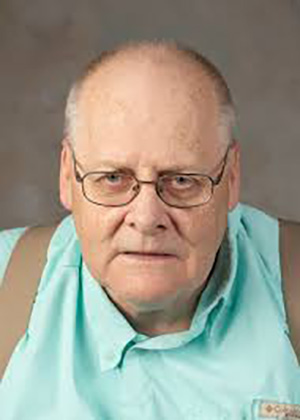By GREG MARKLEY
The religious principles at the heart of a controversy in Huntsville involving a parochial school boys’ basketball team remind me of a 1981 movie. Chariots of Fire is based on Olympic runners in 1924. A pious Scottish Christian runs for the glory of God and an English Jew runs to advance tolerance. (Who is NOT familiar with the film’s electronic theme tune by Vangelis?)
Christian runner Eric Liddell (actor Ian Charleston), finds his 100-meter race is on a Sunday, but he is committed to never run on the Lord’s Day. The Prince of Wales and high-level Olympic officials pressure Liddell to run then, to no avail. An Olympian who won a Silver Medal gives his 400-meter spot to Liddell. He and Jewish runner Harold Abrahams (actor Ben Cross) win gold medals, separately.
Nearly a century since the 1924 Olympics, we must ask how shabbily did Oakwood Adventist Academy’s boys’ basketball team get treated at the Class 1A Boys’ Northeast Regional Basketball Semi-Finals? And, of course, why? The time slot of 4:30 p.m. was unacceptable for Oakwood’s team — it conflicted with their observing the Sabbath: Sundown Friday evening to sundown Saturday. Gov. Kay Ivey was “profoundly concerned” about the players’ treatment.
“Although Oakwood’s opponent and the two teams set to play during the 7:30 p.m. game all reportedly were willing to swap time slots, I’ve read that the AHSAA denied Oakwood’s simple request — not once but twice,” she said in a public letter to Alvin Briggs, executive director of the Alabama High School Athletic Association.
The governor continued: “And the result, for the team, was surely agonizing: It was forced either to play a game against the dictates of its players’ and coaches’ faith or to forfeit the game entirely, and thereby lose the chance to continue a hard-fought and hard-earned successful season.”
Ivey also sent a letter to Judy Chiles-Dent, Principal of Oakwood Adventist Academy, highly praising the players and coaches. She expressed solidarity with them, praised team captain Raynon Andrews who hopes the unfortunate experience won’t ever reoccur, invited the boys basketball team and coaches to the Capitol to meet with her, and expressed admiration for their solid religious faith.
According to USLegal.com, many situations involving sports and religions call into question whether a violation has occurred in separating church and state. There are other scenarios still being analyzed and litigated. More types of sports versus religious issues arise regularly.
Six common ones are: A coach asks his or her players to join hands in prayer prior to a sports contest; a school broadcasts a prayer over the stadium loudspeaker; fans in the stands pray together by bowing their heads in prayer; students at a sporting event hold their own prayer; a player reads from a religious book, alone, in the team’s locker room; and a player preaching to other members on the sidelines encouraging unity and support from a higher power.
Attorney and professor Adam Epstein writes Sports Law (2003) that “Players at all levels of sports continue to express their religious beliefs and are often not penalized for doing so. For example, Sandy Koufax, a Jewish left-handed pitcher, made headlines in 1965 when he refused to pitch the first game of the World Series for the Dodgers because it fell on holiday of Yom Kippur.”
In a like manner, Shawn Green of the LA Dodgers did not play in a late-season game because it conflicted with celebrating Yom Kippur. Vince Lombardi, the coach of the Green Bay Packers, often took his team to Catholic mass every Sunday before football games. In Alabama, as Ivey noted in her letter to the AHSAA, the faith of Alabamians is not to be taken lightly.
“Few things are more important to Alabamians than their faith,” Ivey said. “And from my perspective as governor, this is a very good thing. Indeed, a sincere commitment to faith is one of the defining hallmarks of our great State.”
A 2015 Pew Research Center study showed that 86% of or state’s citizens are Christian, 12% are unaffiliated and the last 2% are of other faiths.
As a presenter at a variety of academic conferences, I always read in the Request for Proposals that if a panelist has a specific day or time that he cannot be on a panel, that organizers will try mightily to put my talk on another day or time. lo-and-beyond, many conference coordinators will write that days can certainly be designed to accommodate religious concerns.
Then why was the high-falutin AHSAA unable to assist the boys from Oakwood Adventist in making a small change that would keep their dream alive? The governor provided many questions for the association. If AHSAA officials don’t respond well, they may need prayer to get through the public embarrassment. Maybe they can put on the Vangelis tape from Chariots of Fire for inspiration.
Greg Markley first moved to Lee County in 1996. He has Masters’ in education and history. He taught politics as an adjunct in Georgia and Alabama. An award-winning writer in the Army and civilian life, he has contributed to the Observer for 12 years. gm.markley@charter.net


